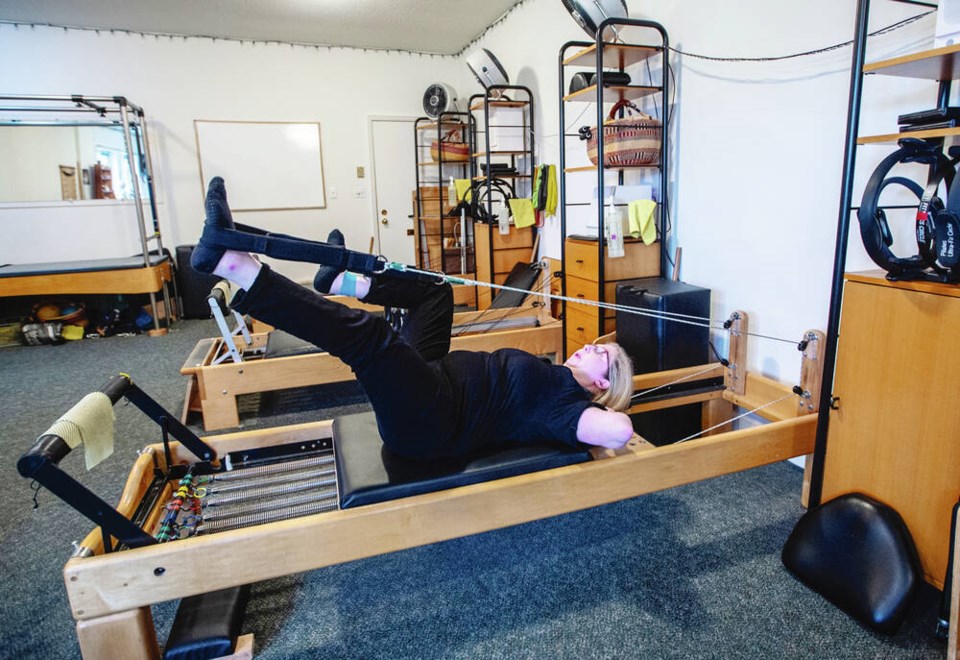A person with a physical disability does not automatically suffer from a lack of physical ability, says a Pilates instructor with a disability who wants to challenge the perception that the physically disabled cannot engage in physical activity
Norah Myers was eight days old when she suffered a brain hemorrhage. Lack of blood to the brain caused two perinatal strokes and damage that led to cerebral palsy, a condition that has left her with weak muscles and impaired movement.
Now 35, she lived her life dealing with chronic pain. The turning point happened one day when she walked into a Pilates studio in Winnipeg, where she lived until December of last year. She discovered, much to her surprise, that despite her condition, she could perform the low-impact resistance exercises.
The Pilates method involves stretching muscles in various combinations in a precise manner, with the goal of increasing strength and range of motion in the participant.
“I had always thought that you needed to be flexible to do Pilates. I discovered that the exercise could be adaptable to my needs, helping me with my pain, balance, posture, flexibility, strength and ultimately my mental health,” said Myers. “Apart from my main form of exercise, it is also my rehabilitation for my disability.”
The form of exercise so changed her life that she quit her desk job in journalism to become a certified instructor.
“People with disabilities just weren’t being told they could do Pilates. What I discovered was that regardless of your disability, Pilates could be performed by anyone with a few modifications and using supports and props. The exercise form is infinitely adaptable,” she said. “It is also safe to perform after a sports injury.”
Myers moved to Victoria in December to be closer to family and is an independent contractor at Pilates Etc. in Oak Bay. But she did bring some of her clients with her, thanks to the pandemic.
When the pandemic first struck in 2020, she stopped offering one-on-one classes and pivoted to an online format.
The classes have been popular among disabled people who have experienced barriers to travel — to see their physiotherapists or other health care providers — over the past two years.
“The classes saved my mental and physical health — as well as all my clients,” said Myers. “I now have clients from around Winnipeg and the rest of Canada and as far as Scotland and London.”
She believes she is just scratching the surface of an untapped market, with the fitness and wellness needs of people with disabilities underserved and disabled trainers even less so.
“I have had people come to me because they felt too intimidated when working with a regular instructor. They tell me they feel more comfortable dealing with somebody who understands and can relate to them.”



